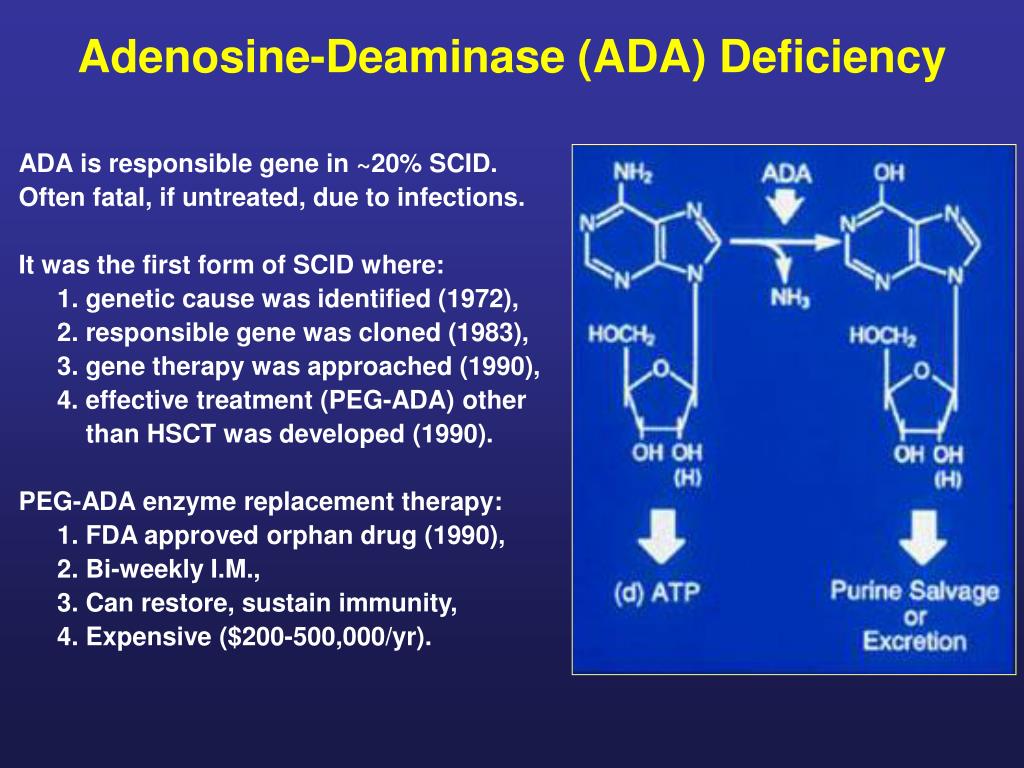
adenosine a chemical that builds up when ADA is absent and is toxic to developing immune cells.The choice between HSCT or gene therapy will depend on whether there are well-matched donors available for transplant and will be discussed at length between the parents and the transplant and gene therapy teams. The differences between these different gene therapy options will be discussed with the families in detail. PEG-ADA treatment corrects the ADA and adenosine levels in the blood, and usually leads to gradual improvement and partial correction of immune function. It can be used until a more definitive therapy is available, such as haematopoietic stem cell transplant (HSCT) or gene therapy.Ĭlinical trials of gene therapy for ADA deficiency are ongoing in Europe and the USA, with Great Ormond Street Hospital being one of the centres where this treatment is available. A related, commercial gene therapy treatment called Strimvelis has been recently approved by NICE and is available to families as an alternative treatment in Milan. It is given as a weekly injection into a muscle, for instance, the thigh muscle.

This is often referred to as enzyme replacement therapy. However, in contrast to other forms of SCID, it is possible to replace the missing enzyme using a medication known as PEG-ADA. The first stages of treatment and precautions are the same as in all forms of SCID. In some cases there may be a low level of working ADA enzyme, leading to a less severe ‘delayed’ onset of combined immune deficiency (CID) – please refer to the separate CID information leaflet available on the PID UK website at What are the signs and symptoms? However, the ADA gene is important in all cells of the body, and therefore patients with ADA-SCID often also have symptoms and signs outside the immune system. White blood cells (especially lymphocytes, and more specifically T cells, B cells and natural killer (NK) cells) that are important for a healthy immune system are very sensitive to these toxic effects and fail to develop normally, leading to SCID. This prevents cells from dividing effectively. Lack of the ADA enzyme causes a build-up of a toxic substance called deoxyadenosine. Enzymes are protein substances that help speed up chemical reactions in the body.

Staying safe at GOSH and outside the hospitalĬoming to GOSH for a day or inpatient admissionĬoming to GOSH for an outpatient appointment Our new visiting guideline after COVID-19


 0 kommentar(er)
0 kommentar(er)
